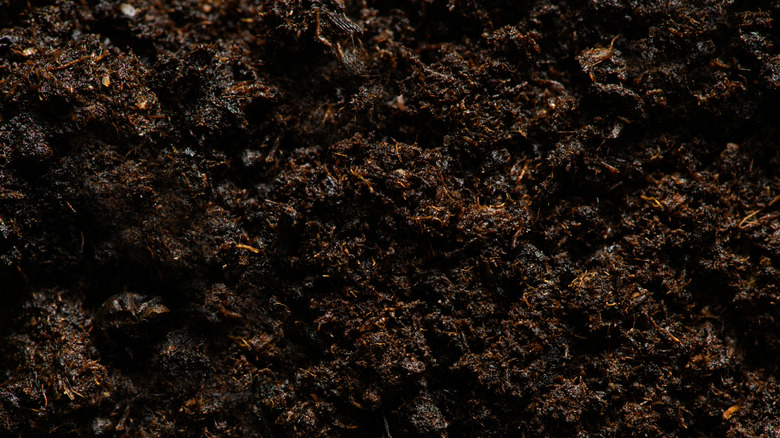Here's Why Maggots Are In Your Garden Soil & How You Can Get Rid Of Them
If maggots are making an unwelcome appearance in your garden soil, it's likely due to the abundance of organic matter breaking down in a moist environment. These squirming pests are often the larvae of flies or fungus gnats, which thrive in damp, nutrient-rich soil. While they can contribute to decomposition, maggots also pose a significant threat to your plants when their numbers get out of control.
Aaron Gutzdorf, who has been in the pest control industry for 18 years and is currently Operations Manager of Truly Nolen for Fort Myers, Florida, explains, "Maggots can cause a significant concern in garden soil, but adult fungus gnat larvae can actively damage plant roots, especially if their numbers are large enough and the plant is young enough." Young plants are especially vulnerable, as their tender roots are easy targets for hungry larvae. This can stunt growth or even kill plants if left unchecked.
Make sure your garden is properly watered. Overwatering is often the root of the problem (a common mistake for beginner gardeners), creating soggy soil where maggots and fungus gnat larvae flourish. The excess moisture also impacts the soil's nutrient balance, potentially leading to nitrogen deficiencies. Tell-tale signs like yellowing leaves, particularly on the older parts of plants, could signal both nutrient loss and pest activity.
How to get rid of maggots in garden soil effectively
To tackle maggots in your garden, begin by addressing their ideal conditions. Overwatering is a common culprit. As Gutzdorf advises, "Cultural practices such as proper watering will help minimize issues." Allow the topsoil to dry out between waterings to make your garden less hospitable to these pests. Another effective solution is diatomaceous earth — which is also a fantastic substance for banishing leafhoppers from your garden, too. Gutzdorf suggests applying it "around the base of the plants" to dry out the larvae and interrupt their life cycle. This natural approach is safe for plants but harsh on pests.
For severe infestations, however, Gutzdorf notes that "a targeted pesticide may need to be used." Choose pesticides specifically formulated for soil pests, and follow directions carefully to avoid harming beneficial insects or disrupting soil health.
While maggots and fungus gnats can't be entirely avoided, strategic practices go a long way. Gutzdorf emphasizes, "While there is never a 100% prevention for issues starting, cultural practices and the use of natural products can help minimize issues or keep them at a manageable level to minimize significant concerns or issues." Proactive care keeps pests in check while ensuring your garden soil supports healthy, robust growth.

